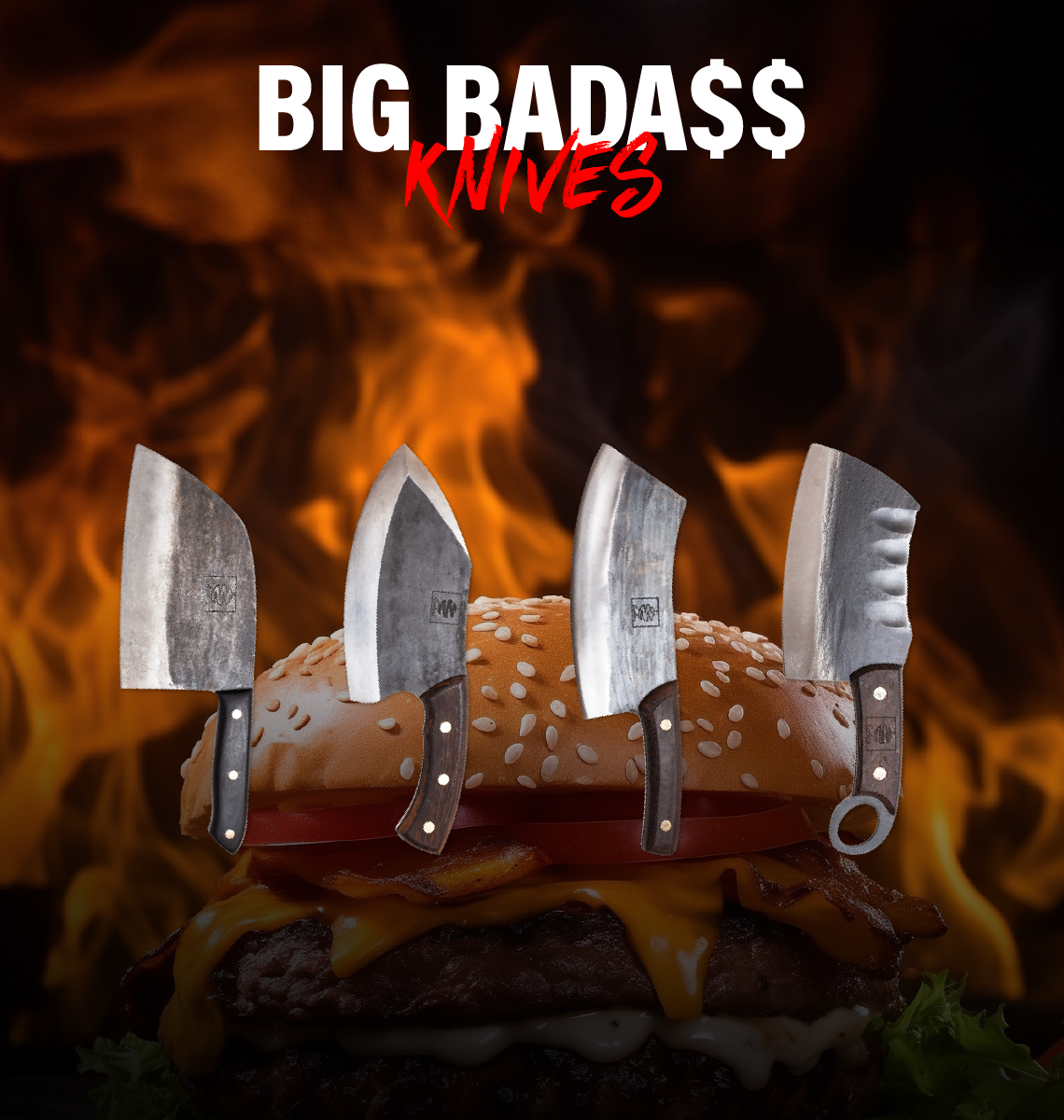5 Facts About Kitchen Knives You Must Know!
Although knives are the most commonly used tools in the kitchen, there are still some myths surrounding them that a lot of people haven’t figured out yet. But to fully utilize your kitchen knives, you need to know everything about them. For example: Did you know you are more likely to injure yourself badly with a blunt knife than with a sharp one? Well, that is precisely the kind of fact we’re going to unravel today. So strap in!
- Sharp knives cause fewer cuts than blunt ones

Starting with a gory one. First of all, please don’t test out this fact at home, just trust me on this one. You might think that this doesn’t make any sense, but let me tell you how it actually does. So when you chop food with a sharp knife, you’re confident that it’ll do the job well even if you don’t add pressure to it. Whereas with a blunt knife, you almost always have to add pressure and that is when the danger of a bad injury occurs. Sure, you can cut yourself with a sharp knife as well, but it will be a clean cut instead of a butchered thumb. To avoid this issue, you’ll need to replace your blunt knives or sharpen them thoroughly.
- Knives can damage your dishwasher and vise versa

Avoid dishwashers at all costs especially if you are dealing with steel knives. Dishwasher detergents are powerful enough to easily pit the steel of your knives. The jostling motion of the machine not only can dull and chip the blades but to also corrode the handles of your knives. Not to mention that your dishwasher’s plastic lining can also be nicked by knives. Make it a habit to wash your knives by hand and you’ll avoid these annoying issues forever.
- Water and moisture will rust your knives

Never leave your knives to soak in the sink for too long, even just a few hours can be quite damaging for the blade. Water and moisture are the biggest causes of rust, so avoiding them as much as possible is a must. Soaking in the water will not only damage the steel blade of your kitchen knife but it will also crack the wooden handle.
Just make sure to wash your knives immediately after use to protect them from rust. But if you have made the mistake and your kitchen knife got rusty, here is a guide for you on how to clean rust from a kitchen knife.
- Too much corralling can damage the blade

We’re used to thinking of our knives as a tool to not only cut our food but also corral it to the edge of the board. This is one of the reasons why we often end up with dull blades. But we have a clever solution for this, which doesn’t require you to stop using the knife.
All you have to do is avoid using the blade of the knife to sweep things off the board, instead turn it over and use the spine of the knife to keep the working edge sharp. (see the photo above).
- Wooden cutting boards are the best for kitchen knives

Hard surfaces like ceramic tiles, glass, basalt, metal or marble chopping boards blunt blades quicker since they are harder than the knife itself. That is why wood is considered the best material when it comes to chopping boards. It is soft enough to not hurt the blade’s edge yet firm enough to insure sturdiness while you cut.
These are valuable lessons kindly provided by now professionals who learned it the hard way. So keep them in mind and share with everyone who takes their safety in the kitchen seriously.






Be the first to comment